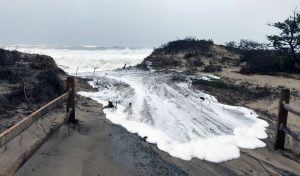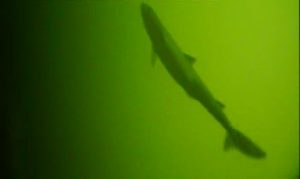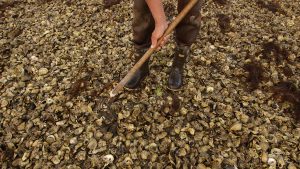Search results for: %E2%9D%A4%EF%B8%8F%20Rencontre%20pour%20moi:%20www.Dating4Me.site%20%E2%9D%A4%EF%B8%8F%20Rencontres%20Anonymes%20Mamba%20Meme%20Youtube
Technology Enables Better HAB Monitoring and Mapping
Technology Enables Better HAB Monitoring and Mapping The project’s sampling plan for the Nauset area of Cape Cod. Sept. 2018 — Nauset Marsh in Eastham, Mass. on Cape Cod serves as a “natural laboratory” for researchers working to better understand harmful algal blooms (HABs) or red tide. HABs in Nauset are caused by the phytoplankton…
Read MoreOutreach: Reporting from the Heart of the Storm
The winter storms of 2018 are experiences most of New Englanders would like to forget. However, the pounding the region took through the month of March left an indelible mark on many north and east facing towns and beaches, destroying homes, buildings, and other structures, and eroding swaths of shoreline. This week the White House…
Read MoreHow Do Sharks Respond to Internal Waves in the Ocean?
A new study provides insight into the behavior of small sharks when encountering a common ocean phenomenon known as internal waves. These waves play powerful and still unknown roles in the exchange of heat, energy, water properties and nutrients throughout the ocean, and can change the vertical distribution …
Read More2006-2008 Projects
Seasonal Changes in Groundwater Flow Into the Coastal Ocean Fresh water from water tables under the land flows out into the coastal ocean from beneath the seabed, a flow known as submarine groundwater discharge (SGD). Researchers have found that such flow can have a very large impact on estuaries. Groundwater carries land-generated nitrogen compounds, plus…
Read MoreOctober 2020 Newsletter
Coastal Impacts Woods Hole Sea Grant Newsletter OCTOBER 2020 CONTENTS Letter from the Director Woods Hole Funded Project Impacts Future of Iconic Industry in Southeastern Massachusetts WHSG Hosts Virtual “Teacher-in-Residence” Staff Assists on Crucial Model Floodplain Bylaw Update Getting To Know – Knauss Fellow Sean McNally Needs Assessment Survey Helps Program with Strategic Planning…
Read MoreWHOI-R-94-006 Rankin, K.L. Transport of Juve
WHOI-R-94-006 Rankin, K.L. Transport of Juve
Read MoreAugust 2020 Coastal Impacts Newsletter
Coastal Impacts Woods Hole Sea Grant Newsletter AUGUST 2020 CONTENTS WHSG Supports Seven Diversity, Equity and Inclusion Projects 12 Weeks, Thousands of Kids: How NOAA Live! Connected Students to Science at Home Woods Hole Sea Grant Sponsors Three for Knauss Fellowship Is There a Market for Shucked Oysters? Eat an Oyster, Support a Local…
Read MoreSurf Clams
Surf Clams In the marketplace, one-year-old surf clams are known as “New England Butter Clams” – a relatively new product on the market. Farming New England Butter Clams means they can be harvested at a size in which they are tender, buttery and sweet – as well as easy and versatile to prepare. This results…
Read MoreEnjoying Oysters Safely in Massachusetts
Each year, millions of fresh raw oysters are consumed in Massachusetts, most of them in the warm summer months. During that time, aquaculturists in the Commonwealth take extra precautions to safeguard their harvests from the heat, include icing oysters at the time of harvest – a step that can double or triple the weight of…
Read More2018 MVCC
Martha’s Vineyard Coastal Conference June 6, 2018 Harborview Hotel, Edgartown, Mass. Keynote A Perfect Storm: The Collision of Hurricanes, Climate Change and Coastal Population Growth Jeff Donnelly, Woods Hole Oceanographic Institution (WHOI) Coastal Research Storm-induced Shoreline Changes on Martha’s Vineyard Steve Elgar and Britt Raubenheimer, Woods Hole Oceanographic Institution (WHOI) Research on Migration and Burial…
Read More


